The House of Lords International Relations and Defence Committee has written to Christopher Pincher MP, Minister of State for Europe and the Americas, ahead of a NATO Leaders’ Meeting to be held early in December.
This follows two special evidence sessions in October.
According to a release, the witnesses who gave evidence to the Committee were: Daniel Drake, Head of the joint Ministry of Defence and Foreign and Commonwealth Office Euro-Atlantic Security Policy Unit; Madeleine Moon MP, President, NATO Parliamentary Assembly; and Sir Adam Thomson KCMG, Director, European Leadership Network and the UK’s former Permanent Representative to NATO.
Principal issues raised by witnesses include, you can read the full statement here:
- Capability – NATO has identified 21 capability shortfalls, many of which are the result of NATO European members not having the necessary capabilities to contribute to the Alliance’s collective defence. The Committee urges the Government to call on all Allies to improve their own capability and to meet their defence spending commitments.
- Russia and arms control – The Committee was glad to hear from witnesses that NATO has strengthened its position against hostile activity by Russia, including election interference and the 2018 Salisbury attack. The Committee urges the Government to support NATO in continuing its dialogue with Russia regarding both nuclear issues and arms control agreements.
- Turkey – Some of the most pressing political challenges facing NATO concern Turkey, namely it’s closeness to Russia, as demonstrated by the purchase of the S-400 missile system, and its recent offensive in northern Syria. The Committee is calling on the Government to use the NATO meeting in London in December to reiterate that while Turkey is a valued Ally, its actions are not without consequence.
- NATO-EU cooperation – All witnesses saw value in closer cooperation between the Alliance and the European Union. The Committee urges the Government to use the London meeting to reassure its European partners that the UK’s decision to leave the EU does not mean the Government will not continue to support the goal of closer EU-NATO cooperation.
Chair of the House of Lords International Relations and Defence Committee Baroness Anelay of St Johns said:
“The forthcoming NATO Leaders’ Meeting in the UK presents an opportunity to mark the 70th anniversary of the Alliance, reiterate its value to all Allies, and most importantly to address pressing issues threatening Euro-Atlantic security.
Important recent successes in strengthening NATO notwithstanding, there remain significant challenges for all Allies to overcome. It is critical that the Alliance plugs gaps in capabilities, and that it does so in a way that reduces the unfair burden placed on certain Allies. It is vital that the Alliance does not rest on its work to defend against Russian threats, but also finds a way to strengthen dialogue with Moscow, especially on the issues of strategic stability and arms control.
Finally, the Alliance must ensure that the political divisions between Allies, most pressingly concerning Turkey and the United States, are taken seriously while not being allowed to threaten NATO unity.”
Furthermore, a recent speech by the Secretary General of NATO, Jens Stoltenberg, expands upon what is perceived to be Russian aggression. The full speech can be found here, but here’s an excerpt:


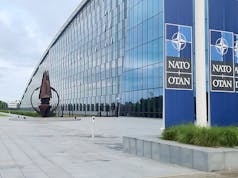
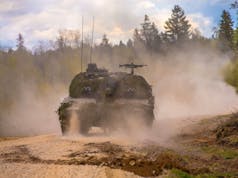



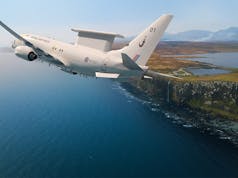
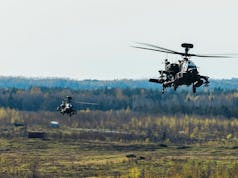
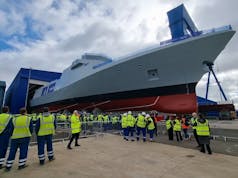

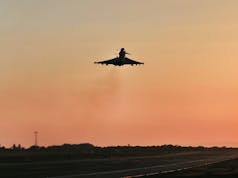

Nuclear weapons aside, I wonder how great a threat Russia is these days. I can understand anxiety in the Baltic states given Putin’s actions in Georgia and Ukraine. But the Red Army is positioned far further east than it used to be and no-longer has the Warsaw Pact to supplement it.
Were it’s tanks to roll Westwards would it make it past Poland or Germany: even with the latter’s laughable defence capability?
Are we making the time honoured mistake of planning to fight the last war – the Cold War – rather than some future unforeseen conflict? Either way, para bellum.
They would find going through Poland tough thats for sure. Thats one country who are currently taking defence seriously, and are now, NATOs tip of the spear. They are the ones who will blunt, slow and disrupt any future russki efforts. I think our powers that be have forgot that a strong defence, a defence with an offensive capability, with the desire and will to use if needed, will prevent conflict.
Russia will always be some sort threat(under Putin) maybe not in the form of advancing tanks in mass , the economics sanctions after invading eastern Ukraine seem to be working as Russia have not advanced any further on.
But threats through cyber , and of course covert terrorism being used by its intelligent agencys and the general undermining of democracy’s ,Putin seems to be consistent on these threats,
The Putin era is one of duality. He has to pretend to be throwing his weight around to secure his political position – hence the absurd procession of clapped out navy ships motoring past Dover. Meanwhile, Russia has failed to develop anywhere near its domestic potential due to a clunky economy that hasn’t shown much advance on the Soviet era; contrast the west, even after the Banker’s Gambling Debt financial crash. The U.S.S.R. failed because it could not change, dare not change: ICBM’s but no toilet paper. The same issue faces tiny Vlad. Progress in the political and economic domestic sphere would destroy him. The issue for NATO is therefore to manage – nurse – Russia towards a peaceful co-existence. Stand up to the pint sized bully and smile at the people.
The House of Lords: pumping the continued EU perspective on everything as usual. I wish they would work for our country and the commonwealth for a change.
How about some objective and constructive criticism regarding the collaboration between Putin and Merkel – disarming Germany for Russian Gas, rather than standing up to Putin and siding with the US?
He’s actually doing the same thing to Germany that he did to Ukraine, slowly but surely dismantling their military forces so he can start to move closer to Western Europe. For some strange reason, Merkel is helping him to achieve this goal while she is in power, she is an appeaser and it isn’t good for NATO or Europe.
I make my comment as a military and weapons historian and an American who has worked with British Army that they are the masters of the masters of the machine gun because they have never forgotten the capabilities of the machine gun. The United States Army on the other hand forgot everything when they transitioned to 7.62 NATO round.